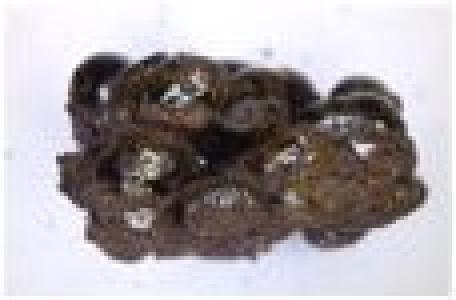MICROwaves heating for sintering of regoLITH - MICROLITH

Background and justification:
In the context of In Situ Resource Utilization for the colonization of the Moon, the use of microwave induced sintering for obtaining simple artifacts, namely bricks for construction and electrodes for oxygen extraction, is evaluated. A terrestrial demonstrator is designed and developed for such purpose. Understanding the possible impact of lunar regolith peculiarities (e.g.: variability on different lunar sites, glassy phases etc.) as well as of the operating conditions (e.g.: very low pressure) on the process is a mandatory task to be accomplished in order to validate the technique. Once validated on Earth, an estimation in terms of requirements, costs, and time for a lunar demonstrator is then possible.
Achievements and status:
A fully functional system able to use a microwave source for building layer-by-layer solid artifacts obtained by sintering powder mixtures representative of lunar regolith has been set up and tested. The relatively wide range of variability of the terrestrial simulant used and its purposely created augmented versions (i.e.: granulometric fractions, Fe2+ content, and glassy fractions) demonstrated the potential of the microwave heating as a valid solution to heat up and sinter inorganic matrices with chemical and mineralogical characteristics such as those of the lunar regolith taken in different regions of the Earth’s satellite. Possible technical issues related to the sintering technique have also been highlighted and explained; in particular the occurrence in a given range of pressure below the atmospheric one (namely 10-1-10-2 mbar) of a problem of power loss due to a glow discharge phenomenon is expected to become negligible moving towards the range of very low pressures such as those in the real lunar environment. A road map for the implementation of a lunar demonstrator has been defined. For such task, the possible needed adaptation actions of the sintering apparatus have been defined considering the extreme and harmful operating conditions.
Benefits:
The obtained results demonstrated the feasibility of microwave sintering of regolith collected from different regions of the Moon (e.g.: Maria and Highlands). Furthermore, the results give indications about a proper selection of the lunar regolith to be collected for feeding the sintering system to obtain the desired material density.
A reasonable hypothesis of the components needed for the realization of a lunar demonstrator including e.g.: supports and containers for the sintering apparatuses, related services and control systems, costs estimation have been done including a timing forecast, too.
